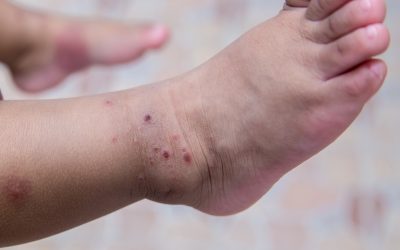Well-child checks are an important part of a routine healthcare schedule for children, with the specific aim of ensuring your child enjoys a healthy, happy childhood leading to a healthy, happy life in which they thrive. These important checks serve three main purposes:
To ensure your child is growing and developing as expected
To pick up problems that need intervention or support
To provide guidance and health information on what to be mindful of at each stage of life
I would be delighted to perform these for you and I hope you find the following information useful.
Latest News From Our Blog
Why Dr Sara Watkin for Well Child Checks?
If you aren’t familiar with me, you can find out more here:
30 Years' Experience
Tertiary Trained & Experienced
Calm & Reassuring
True Consultant Neonatologist
Current Resuscitation Skills
Available 24/7 Quickly
Former NICU Chief of Service
Newborn Emergencies
Neonatal care from 24 Weeks
Sign Up to My Occasional Newsletter
If you have issues submitting above e.g. spambot recognotion, please use the manual form: Newsletter Manual Form
Importance of Well Child Checks
Early is almost always better
Well-child checks are an important means for identifying potential problems as early as possible. Us mums should be only to aware of ‘early is better’, given we readily accept the importance of regular Pap Smears, with the specific aim of picking up important problems BEFORE they are outwardly symptomatic. It’s the same with well-child checks – an opportunity to identify problems, and therefore intervene, as early as possible to produce the best possible outcomes. Well-child checks are an important part of spotting certain types of things before they are outwardly obvious.
Although many are really rare, many genetic problems and certain rare diseases only become identifiable at certain stages of childhood. We use our well-child checks to look for signs of these too. Most of these are progressive i.e. they become more prominent over time, so a regular opportunity to check is really important.
More than vaccines & growth charts
These visits also give parents an opportunity to discuss concerns, including nutrition, sleeping issues, toilet training, and social problems, as well as gain guidance on what to be on guard against or mindful of in the next stage of development. When parents only bring children to see a paediatrician when the child is unwell, the focus on this often means there isn’t time to discuss many other matters. Moreover, the presence of sickness e.g. Hand, Foot & Mouth, Flu etc, means this isn’t the best time to assess the longer term things we look for. We wouldn’t want to over-diagnose because of current symptoms and at the same time we wouldn’t want to inadvertently miss something important because it was masked by current symptoms. A separate well-child check works best.
An important benefit of a well-child visit is developmental monitoring. Whilst interacting with children, good paediatricians may spot problems with playing, speaking, or interacting. Such signs may allude to autism, attention-deficit/hyperactivity disorder, or a learning disability. Identifying children with these problems early can help ensure they receive much-needed care and support and can make the difference between remaining in mainstream school versus needing more complicated schooling arrangements. As recent news articles in Cayman have highlighted, we are under-served when it comes to special educational needs and so early support can be really important. My own son has an autistic spectrum disorder and the right support was been vital to his schooling (he has graduated from St Ignatius, read Maths at University of Exeter and now works here in Cayman at PWC).
Schedule
The American Academy of Pediatrics recommends 14 well-child visits in the first 5 years of life, and then annually up to the age of 21 years. It’s a robust schedule with distinct milestones and checks that differ or progress from visit to visit. The recommended schedule is:
- 2 to 5 days old
- 1 month
- 2 months
- 4 months
- 6 months
- 9 months
- 12 months
- 15 months
- 18 months
- 24 months
- 30 months
- 36 months
- Annually thereafter to age 21






